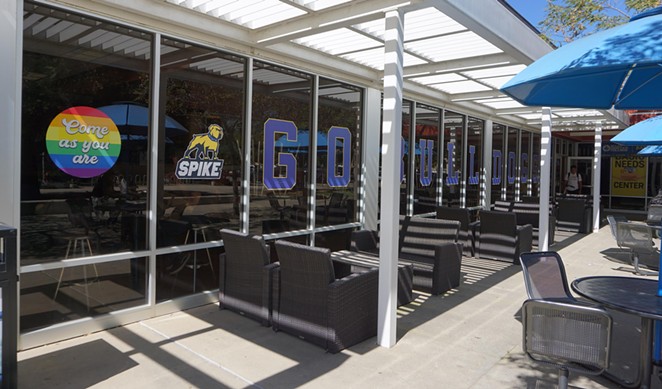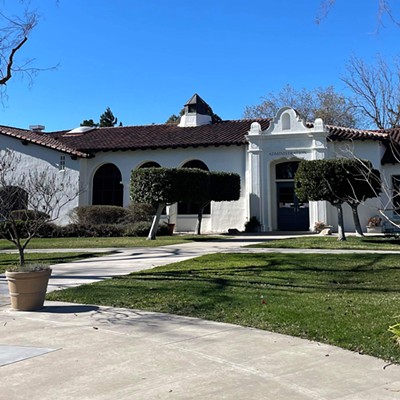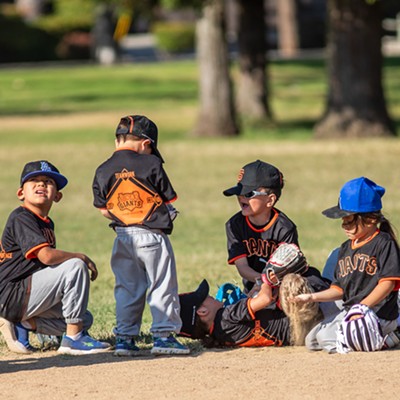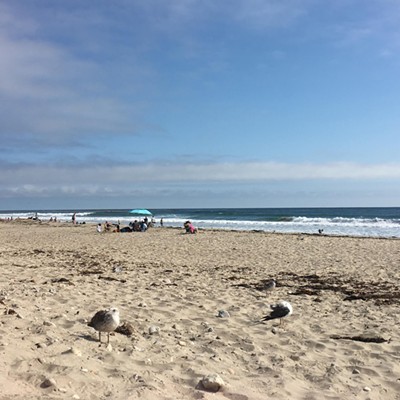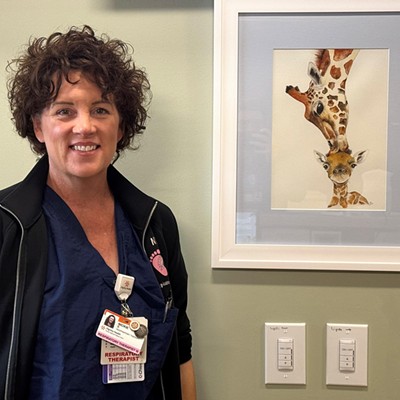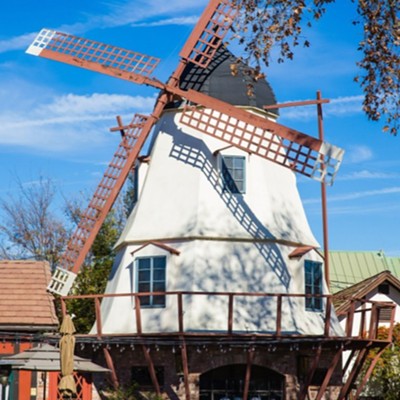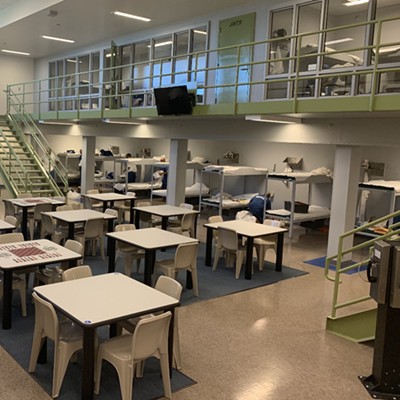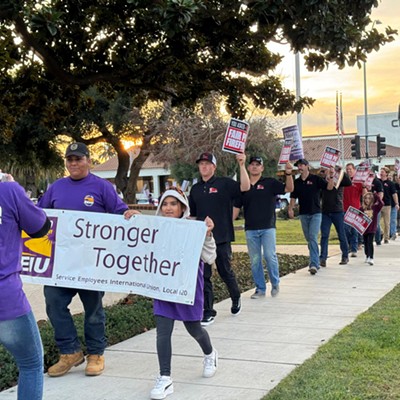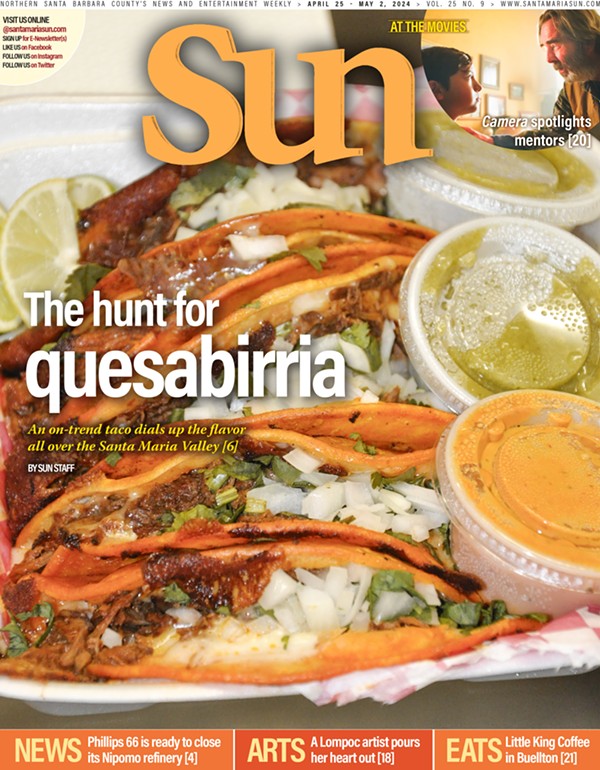In the early days of the Allan Hancock College Pride Alliance, students wrote on name tags preferred names and pronouns, with the understanding that the names would only be used during meetings for safety reasons, said Jackie, a student and Pride Alliance member.
The student organization is dedicated to helping LGBTQ-plus students through events and advocates for more representation on campus.
“Pride Alliance is kind of an oasis in [the] sense [that] you can be very open about parts of yourself that you can’t in other places. And that’s really important because there is no other space, to my knowledge, that you can go to … in Santa Maria,” Jackie said.
Santa Maria’s small-town feel and conservative political leaning can make it challenging for some students to identify as part of the LGBTQ-plus community, said Jackie—who asked the Sun to withhold their last name.
“If you’re like me, I’m not out to my family. I can’t be. So I had to be very careful because I have people I know everywhere, and I have so much family around here,” they said. “It’s very hard to know when you can be open about all parts of yourself, but for Hancock, for Pride Alliance I know I can be.”
After the COVID-19 pandemic shutdowns closed access to campus and student organizations, Pride Alliance was resurrected with the help of a California Community College Chancellor’s Office grant dedicated to helping LGBTQ-plus students find connections on campus, said LeeAnne McNulty, the school’s director of institutional grants and programs. Hancock received $88,000 in 2022 and an additional $89,000 as a result of the first grant to continue its work.
“That funding came down as a reaction to the high rates of suicide and homelessness of the LGBTQ-plus community and especially in places like this, which is such a conservative community where many of our students haven’t come out to their families yet,” McNulty said.
Santa Maria—like many Central Coast communities—doesn’t have a designated LGBTQ-plus business, and organizations dedicated to serving the LGBTQ-plus community often struggle to find spaces that will host LGBTQ-plus friendly events.
“Hancock, the work here is so important, and it’s a starting point, but I want to see it in the wider community,” Jackie said. “For someone to put a Pride flag in front of their business, that says a lot. I think there’s a silent majority of support in Santa Maria, but generally that support isn’t voiced because we do know that there are people who would, you know, have opposition to it.”
Through the grant, the Pride Alliance was able to get Hancock Pride-themed clothing, host more events and meetings, participate in Solvang’s Pride parade, and work on projects like getting more all-gender restrooms on campus and a full-time Pride Center—which is currently under construction.
“A lot of people were like, ‘Why do you need a Pride center? There’s not even that many students that would go in there.’ And I said you don’t even know because you don’t ask; we don’t have any data on that. The data we have is not really usable data,” McNulty said.
Hancock’s data comes from college applications, which students often complete with their high school peers and teachers in the classroom and sometimes parents are involved for tax information purposes, she said. Application data shows that only 232 students identify as LGBTQ-plus. However, through the Chancellor’s Office, community colleges statewide are working on collecting data through private forums—with estimates showing that 10 percent of community college populations statewide identify as part of the LGBTQ-plus community.
“We have support mechanisms, and we’re taking steps to make this a very LGBTQ-plus open and friendly and safe place,” McNulty said.
Like Pride Alliance, House of Pride and Equality is also bouncing back from the COVID-19 pandemic and working on hosting more events for LGBTQ-plus individuals, said Suzette Lopez, House of Pride and Equality’s (HOPE) president.
“We’re definitely gaining momentum. Last year was proof that there is a demand for safe spaces,” Lopez said. “Last year, we held Pride at the Santa Maria Fairpark, and it was one of the biggest Prides that we had in the Santa Maria community.”
HOPE is a Santa Maria-based LGBTQ-plus nonprofit that hosts monthly events called Hanging with HOPE, sets up informational tables at community events, and coordinates Santa Maria Pride to help create more visibility for the local LGBTQ-plus community. In 2023, more than 1,000 people attended the June event—Santa Maria’s first Pride since the COVID-19 pandemic, she said.
“The fact that after a long haul we had a lot of people come in and people wanted to get involved, it was just crazy. It was mind-blowing. It showed us that the community is there and, again, there is a need for safe spaces, and HOPE was able to create an ultimate safe space by bringing Pride back.”
HOPE started in Santa Maria in 2016 when community members hosted a vigil to honor the 49 people killed during the Pulse Nightclub shooting in Florida, she said. The COVID-19 pandemic slowed down HOPE’s momentum and many of the organization’s board members moved away.
“We weren’t sure that the organization was going to survive, [but] the people who were still in Santa Maria decided that HOPE has been something very important for people in the community,” Lopez said. “We were in a meeting and I said, ‘HOPE was there for me when I needed someone, when I needed a safe space.’”
Lopez first got involved with HOPE in 2017 when she was going through her coming out process, she said.
“I was a late bloomer, I came out in my mid-20s. Part of the reason why I feel that happened is because Santa Maria doesn’t really offer safe spaces for people to be able to explore themselves,” she said. “I always felt othered and I never understood why, so after [I came out] in my mid-20s, … a lot of things started making sense. Like I was suppressing a part of myself that I wasn’t even allowing to exist.”

Growing up in a Mexican household and heavily involved in church added challenges to her coming out process, she added. Once she came out, Lopez found DJing as a way to give back to her community by playing at and helping create local LGBTQ-plus events on the Central Coast, she said.
“People groove with music, and you need a vibe to be able to vibe in a safe space. … I love being a part of creating that vibe,” Lopez said.
When she was younger, she played piano for her church and played drums, which led her to DJing. As DJ Suz, she plays throughout the region and is the founder of Mirame Entertainment—an entertainment company that creates culturally inclusive events to make people feel safe and seen, she said.
“We do get support from the community in the sense that they sponsor our events, but finding an actual space that is designated for the queer community does not exist in Santa Maria,” Lopez said. “Some may be OK with a queer event, but they might not be OK with a drag queen, and that makes me question as an individual—as me, as Suzette—if you want a queer event, but you don’t want a drag queen, are you really a safe space?”
Mirame Entertainment has parted ways with organizations and venues that don’t align with its mission, she said.
“A safe space for the queer community doesn’t just have to be a drag show or a party, it also has to be a space where an individual can come and heal, and we need to be able to offer those spaces,” Lopez said. “We’d like to see more intentional safe spaces for the queer community, and I hope we are doing that as an org. I hope that our actions are speaking for themselves.”
Reach Staff Writer Taylor O’Connor at [email protected].


